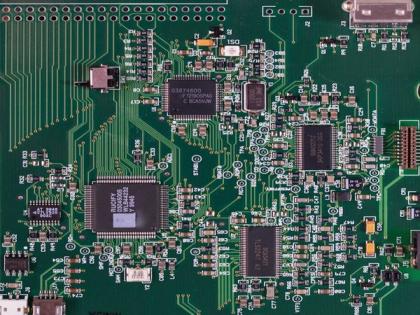Semiconductor equipment billings in Taiwan to double this year: SEMI
By ANI | Updated: September 9, 2025 12:30 IST2025-09-09T12:27:21+5:302025-09-09T12:30:03+5:30
Taipei [Taiwan], September 9 : Semiconductor equipment billings in Taiwan are expected to double this year, as manufacturers in ...

Semiconductor equipment billings in Taiwan to double this year: SEMI
Taipei [Taiwan], September 9 : Semiconductor equipment billings in Taiwan are expected to double this year, as manufacturers in the industry are keen to expand production to meet strong global demand for artificial intelligence applications, which represents companies in the electronics manufacturing and design supply chain, as per a report by Focus Taiwan.
Speaking at a SEMI news conference before the opening of SEMICON Taiwan 2025 on Wednesday, SEMI's Director of Industry Research and Statistics Clark Tseng said semiconductor equipment billings in Taiwan are expected to grow by an annual 100 per cent this year, beating an earlier estimate of 70 per cent growth.
He said that Taiwan received a boost from a large-scale investment in AI-related semiconductors, especially in graphics processing units (GPUs) and high bandwidth memory (HBM), posting the strongest growth in the world.
In the first seven months of the year, semiconductor equipment billings in Taiwan soared 134 per cent from a year earlier, Tseng noted.
"South Korea is also benefiting from AI development, as evidenced by its report of a 38 per cent year-on-year increase in semiconductor equipment billings in the seven-month period, he said.
China, meanwhile, saw an 11 per cent year-on-year decline due to a relatively high comparison base in the previous year, the report quoted Tseng.
Worldwide, semiconductor equipment billings are estimated to grow by an annual 7-10 per cent in 2025, with wafer equipment recording 6-7 per cent growth, IC testing 23 per cent, and assembly equipment 8 per cent, he said.
Equipment to produce chips made on the 7 nanometer process and more advanced technologies, as well as memory chips, are expected to account for about 40 per cent of the total global billings this year, Tseng said.
He forecast that the ratio will rise further to 45 per cent in 2027, and 55 per cent in 2030.
At the news conference, Tien Wu, CEO of IC packaging and testing services provider ASE Technology Holding Co., said that while the global semiconductor value chain will undergo restructuring over the next decade, Taiwan's semiconductor industry is expected to maintain its technology lead in the fields of AI and data center development by a margin of two to three years.
The world's semiconductor value chain is an interconnected network of geographically diverse companies that design, produce, and distribute semiconductors.
Wu said that while the global business environment will become more complicated, Taiwanese semiconductor firms could maintain their market lead by simplifying their solutions, thus allowing their clients to more easily solve problems.
He also suggested that Taiwan's semiconductor suppliers leverage their advanced processes to secure more orders in AI applications, while also developing technologies used in automation, Co-Packaged Optics (CPO), 3D Chip-on-Wafer-on-Substrate (CoWoS) packaging services, and power management.
Such a strategy will help Taiwan prepare for growing competition in the global semiconductor value chain, he said.
The annual SEMICON Taiwan, which SEMI describes as the "Olympics of the semiconductor industry," is expected to draw a record 1,200 enterprises from 56 countries this year. They will showcase their innovations at over 4,100 booths, attracting a record 100,000 visitors, the report cited SEMI.
Disclaimer: This post has been auto-published from an agency feed without any modifications to the text and has not been reviewed by an editor
Open in app